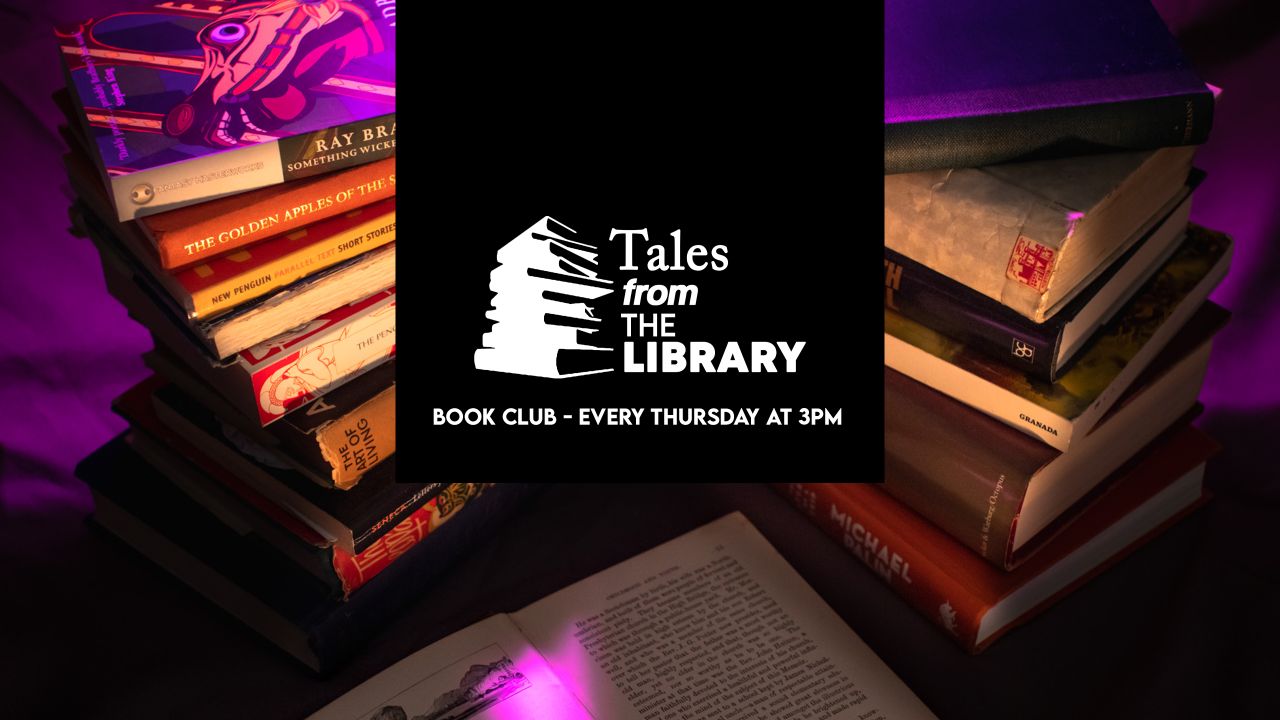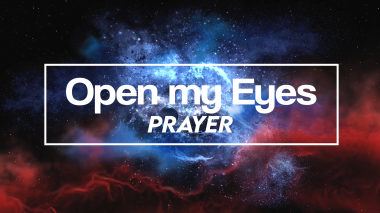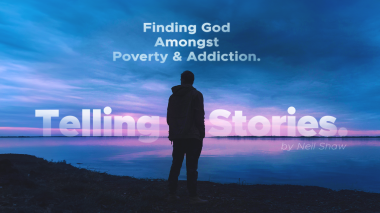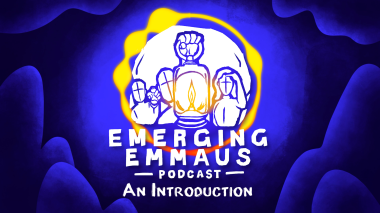Tales From The Library - The Difficult Path
Checking for any available downloads...
Download this video to your computer: Download
(right-click and choose "Save/Download Linked File As...." or similar)
Join us for Tales From The Library a virtual bookclub on Sanctuary First. Every Thursday at 3pm we will explore a new book and tale from various different writers. Read the book in advance or listen to our available audio recordings of the stories and then join us for a chat about the story and its deeper themes and meanings.
BOOK LIBRARY: Check our the full library of our other books and Audio books HERE
This week's Tales from the Library Book is 'The Difficult Path' by Hermann Hesse. This story is part pf a three part series where we will look deeper at some of Hesse's most spiritually questioning tales.
The story tells of a journey in faith and hope, of life and death, and a strange guide that holds our hand and directs our journey through life.
In this story Hesse Shows great human compassion and displays a strong faith, asking the bigger questions about beliefs and our journey in life and spirituality. Hermann Hesse's life and literary oeuvre are characterized by a constant preoccupation with the questions of religion and faith that were his companion virtually from the cradle on.
His father's and grandfather's missionary work in India meant that Hesse was soon exposed to Hinduism and Buddhism, and he later went on to explore Chinese Taoism. Yet this path did not cause him to renounce Christianity. On the contrary, in fact: in the course of his lifelong investigation of the phenomenon of religion, he developed the notion of a synthesis between the religions on the basis of a universal mysticism. He was, in fact, seeking the unity of all peoples, a connecting bridge between East and West. Siddhartha and, of course, his later work, Das Glasperlenspiel, bear literary testimony to this lifelong search for a God.
This story was originally written and published as The Hard Passage in 1917, as part of the book 'Strange News from Another Star' Featuring eight short fairy tale stories.
These stories were also published in The Complete Fairy Tales of Hermann Hesse in 1995 with a new English translation by Jack Zipes. Two of the stories' English titles changed with this new translation:
"Strange News from Another Star" became "Strange News from Another Planet"
"The Hard Passage" became "The Difficult Path"
These stories were written prior to and during the First World War and brought Hesse into conflict with supporters of the war, his country and its government. Unlike his earlier works, these stories do not lend themselves to rational interpretation. They are essentially fairy tales dealing with dream worlds, the subconscious and magic. In these stories, Hesse challenged conventional intellectual life and the orthodoxy of the world.
Find this story in another translation from the original german HERE
You can also buy this full book 'Fairy Tales of Hermann Hesse' via Amazon HERE
More to Discover
Looking for more? Here is a rather beautiful extract from Hermann Hesse's book 'Wandering, Notes and Sketches'. You can purchase a copy of this full book HERE
 "For me, trees have always been the most penetrating preachers. I revere them when they live in tribes and families, in forests and groves. And even more I revere them when they stand alone. They are like lonely persons. Not like hermits who have stolen away out of some weakness, but like great, solitary men, like Beethoven and Nietzsche. In their highest boughs the world rustles, their roots rest in infinity; but they do not lose themselves there, they struggle with all the force of their lives for one thing only: to fulfill themselves according to their own laws, to build up their own form, to represent themselves. Nothing is holier, nothing is more exemplary than a beautiful, strong tree. When a tree is cut down and reveals its naked death-wound to the sun, one can read its whole history in the luminous, inscribed disk of its trunk: in the rings of its years, its scars, all the struggle, all the suffering, all the sickness, all the happiness and prosperity stand truly written, the narrow years and the luxurious years, the attacks withstood, the storms endured. And every young farmboy knows that the hardest and noblest wood has the narrowest rings, that high on the mountains and in continuing danger the most indestructible, the strongest, the ideal trees grow.
"For me, trees have always been the most penetrating preachers. I revere them when they live in tribes and families, in forests and groves. And even more I revere them when they stand alone. They are like lonely persons. Not like hermits who have stolen away out of some weakness, but like great, solitary men, like Beethoven and Nietzsche. In their highest boughs the world rustles, their roots rest in infinity; but they do not lose themselves there, they struggle with all the force of their lives for one thing only: to fulfill themselves according to their own laws, to build up their own form, to represent themselves. Nothing is holier, nothing is more exemplary than a beautiful, strong tree. When a tree is cut down and reveals its naked death-wound to the sun, one can read its whole history in the luminous, inscribed disk of its trunk: in the rings of its years, its scars, all the struggle, all the suffering, all the sickness, all the happiness and prosperity stand truly written, the narrow years and the luxurious years, the attacks withstood, the storms endured. And every young farmboy knows that the hardest and noblest wood has the narrowest rings, that high on the mountains and in continuing danger the most indestructible, the strongest, the ideal trees grow.
Trees are sanctuaries. Whoever knows how to speak to them, whoever knows how to listen to them, can learn the truth. They do not preach learning and precepts, they preach, undeterred by particulars, the ancient law of life.
A tree says: A kernel is hidden in me, a spark, a thought, I am life from eternal life. The attempt and the risk that the eternal mother took with me is unique, unique the form and veins of my skin, unique the smallest play of leaves in my branches and the smallest scar on my bark. I was made to form and reveal the eternal in my smallest special detail.
A tree says: My strength is trust. I know nothing about my fathers, I know nothing about the thousand children that every year spring out of me. I live out the secret of my seed to the very end, and I care for nothing else. I trust that God is in me. I trust that my labor is holy. Out of this trust I live.
When we are stricken and cannot bear our lives any longer, then a tree has something to say to us: Be still! Be still! Look at me! Life is not easy, life is not difficult. Those are childish thoughts. . . . Home is neither here nor there. Home is within you, or home is nowhere at all.
A longing to wander tears my heart when I hear trees rustling in the wind at evening. If one listens to them silently for a long time, this longing reveals its kernel, its meaning. It is not so much a matter of escaping from one’s suffering, though it may seem to be so. It is a longing for home, for a memory of the mother, for new metaphors for life. It leads home. Every path leads homeward, every step is birth, every step is death, every grave is mother.
So the tree rustles in the evening, when we stand uneasy before our own childish thoughts: Trees have long thoughts, long-breathing and restful, just as they have longer lives than ours. They are wiser than we are, as long as we do not listen to them. But when we have learned how to listen to trees, then the brevity and the quickness and the childlike hastiness of our thoughts achieve an incomparable joy. Whoever has learned how to listen to trees no longer wants to be a tree. He wants to be nothing except what he is. That is home. That is happiness."
We have covered other Hermann Hesse books in previous weeks, these can be found in our library:




 Add to Favourites
Add to Favourites




Login to comment.